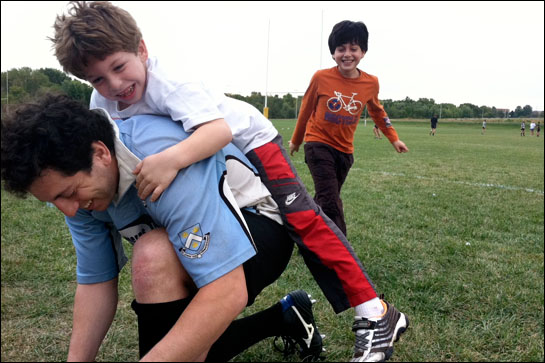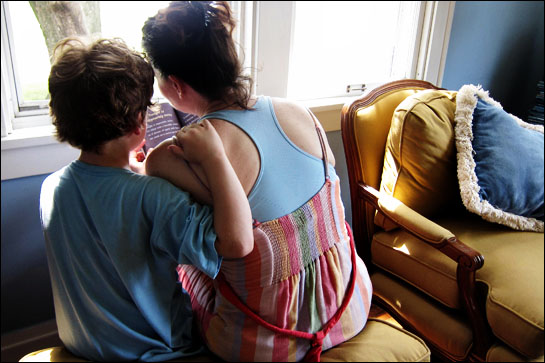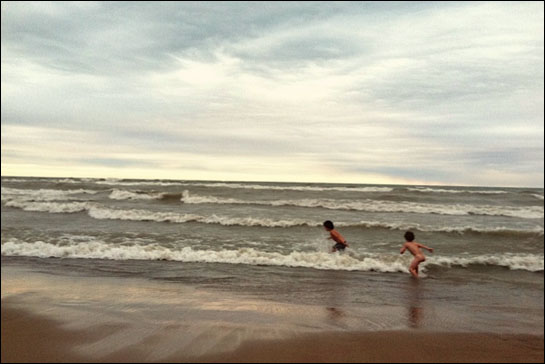
Before I knew how to write, I would dictate stories about my life to my dad. Then, slowly, I started writing myself.
I remember when I learned how to spell the word S-A-I-D. I remember saying to my dad, “Really? Really that’s the way?” I remember feeling a sense of excitement that the spelling was so unexpected. Like, now anything could happen with language.
I thought about that moment while my sons were at my brother’s chemistry lab.
My brother’s co-worker showed us cancer cells under a microscope. I have to tell you that my six-year-old son did not really care.
Here is a list of things he would have rather been doing:
Soccer
Grocery shopping
Anything with another kid who is not his brother
Regardless, we each learned something there at the microscope.
I learned that the biggest learning moments are not when you have the oportunity to do something very important and special. Rather, the big learning moments are when you do something that stirs excitement inside you.









